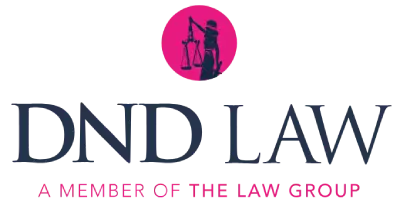Legalizing University Documents for use Abroad by a Notary Public.
Legalizing university documents for use abroad often involves multiple steps to ensure their authenticity is recognized in a foreign country. The process typically includes notarization, obtaining an apostille (if applicable under The Hague Convention), and, in some cases, further certification by the foreign embassy or consulate. Here’s a step-by-step guide to legalizing university documents for use abroad:
1. Understand the Requirements of the Destination Country
• Check Requirements: Different countries have different requirements for document legalization. Some accept an apostille if they are part of The Hague Convention, while others may require additional consular
legalization.
• Purpose of Document: Common purposes for legalized university documents include applying for jobs, visas, further studies, or professional certifications abroad.
2. Prepare the Original University Document or Obtain a Certified Copy
• Obtain Certified Copies: If you don’t want to use your original documents (like diplomas, transcripts), request certified copies from your university. Universities often have specific procedures for providing certified copies, and these may be required for notarization.
• Verify Document Authenticity: Make sure your document includes official stamps, seals, or signatures, as these may be needed for it to be notarized.
3. Notarization by a Notary Public
• Find a Notary Public: In the UK or other countries, a notary public is authorized to authenticate documents for international use. You can find a local notary public online or through legal directories.
• Notarization Process:
1. Present the Document: Bring the original or certified copy of your university document to the notary.
2. Provide Identification: Be prepared to show ID (such as a passport) to verify your identity.
3. Certification by Notary: The notary will add a certificate confirming the document’s authenticity or certifying that it is a true copy.
• Cost: Notarization fees vary by country and document type, usually ranging between £50-£100.
4. Legalization by Apostille (If Required)
• Determine Apostille Need: If your document is for use in a country that is part of The Hague Apostille Convention, an apostille will usually be sufficient after notarization.
• Apply for an Apostille:
1. Submit Document to the Apostille Authority: In the UK, this is handled by the Foreign, Commonwealth & Development Office (FCDO). In the U.S., each state’s Secretary of State office handles apostilles.
2. Pay Apostille Fee: The fee is typically around £30 in the UK.
Processing time may vary based on postal or express services.
3. Receive Apostilled Document: The apostille, attached to your notarized document, verifies the notary’s authority and confirms its validity for use abroad.
5. (If Required) Legalization by the Foreign Embassy or Consulate
• Verify with the Embassy: Some countries require additional legalization by their embassy or consulate in the country of document origin, even if an apostille is obtained. This is common for countries
outside the Hague Convention.
• Process at Embassy/Consulate:
1. Submit the Apostilled Document: Bring the apostilled document to the foreign embassy or consulate.
2. Pay Consular Fees: Additional fees are often charged for consular legalization, which vary by country.
3. Receive Final Certification: The consulate will attach a stamp or certificate to further authenticate the document, confirming its validity for use in their country.
6. Consider Certified Translation (If Necessary)
• Determine Language Requirements: If the document is not in the official language of the destination country, you may need a certified translation.
• Certified Translator: Use a translator who is officially certified, as some countries require translated documents to be certified separately.
• Attach Translation to Original Document: Both the original and translated versions may be bound together and notarized or legalized as a set.
7. Using the Document Abroad
• Once your university document is fully legalized, it should be accepted by the foreign country’s authorities. This could be for job applications, study enrollment, or legal requirements.
Summary Checklist
1. Check requirements of the destination country (apostille or embassy legalization).
2. Notarize the university document (original or certified copy).
3. Obtain an apostille (if applicable under The Hague Convention).
4. Further legalize at the foreign embassy or consulate (if required).
5. Translate and certify if the destination country requires documents in its official language.
By following this process, you can ensure that your university documents are properly authenticated and accepted for official purposes abroad.
Kevin Neary BCL TEP Solicitor ( NI RoI and England/Wales) Notary
Public
Office: +442830264611
Mobile: +447775648511
Fax : +442830267000
Email: kevinneary@dndlaw.com
Address: 1Downshire Road, Newry , County Down
DNDLAW (The Firm) will not send you information about changes to bank account details by email. If you receive an email purporting to be from someone at the Firm advising you of a change to bank account details it is not genuine. Do not reply to the email or act on any information it may contain. Instead please contact the person dealing with your matter immediately. The firm accepts no responsibility if you transfer money to a bank account which is not ours.
Read Also: if you are looking for Solicitor Newry, Please click here
Please note we do not accept service by email notwithstanding any court rules to the contrary If you know anyone who needs my assistance please do ask them to make contact or recommend my services to your friends and
family or work colleagues.
The information contained in this communication is intended solely for the use of the individual or entity to whom it is addressed and others authorised to receive it. It may contain confidential or legally privileged information. If you are not the intended recipient you are hereby notified that any disclosure, copying, distribution or taking any action in reliance on the contents of this information is strictly prohibited and may be unlawful. If you have received this communication in error, please notify us immediately by responding to this email and then delete it from your system. The information in this email is confidential and may be privileged. It is for use by the addressee only.
If you are not the addressee or if this email is sent to you in error, please let us know by return and delete the email from your computer. You may not copy it, use its contents or disclose them to another person. The Firm is neither liable for the proper and complete transmission of the information contained in this communication nor for any delay in its receipt. Please note telephone calls may be recorded for training or regulatory purposes.The Firm takes reasonable precautions to ensure that e-mail transmissions are checked for viruses but the Firm shall not accept responsibility for any loss occasioned as a result of the corruption by virus or otherwise of this transmission.
The scanning of this transmission for viruses and other malicious programs shall be the responsibility of you the recipient.The Firm shall not be deemed to have approved of this transmission where it shall have been sent otherwise than in the ordinary course of the Firm’s business. The Firm reserves the right to monitor all electronic transmissions to and from the Firm as part of the Firm’s policy of managing the proper use and operation of its communication systems.
Read Also: if you are looking for Personal Injury Solicitors Newry, Please click here
This Firm is a limited liability company registered in Northern Ireland under ref NI621267 whose registered office is at 1 Downshire Road Neery County Down . In the Republic of Ireland we trade as an unincorporated practice but our liability is limited in all cases by our terms of business whether read or signed by the client or not. Donnelly Neary & Donnelly , SC Connolly & Co and Eamon King & Co are trading names only and have no separate existence .The Firm is recognised as Data Controllers under data protection legislation. If you would like to find out more about how we use personal data and your rights in relation to your personal data please see read our privacy notice which is available on our website.
All work is transacted on or terms of business which may be obtained on our website or sent to you on request . Any changes to the terms of our retainer including any change to our limitation on liability must be agreed to by us and signed by a Director or the company in hard copy format

